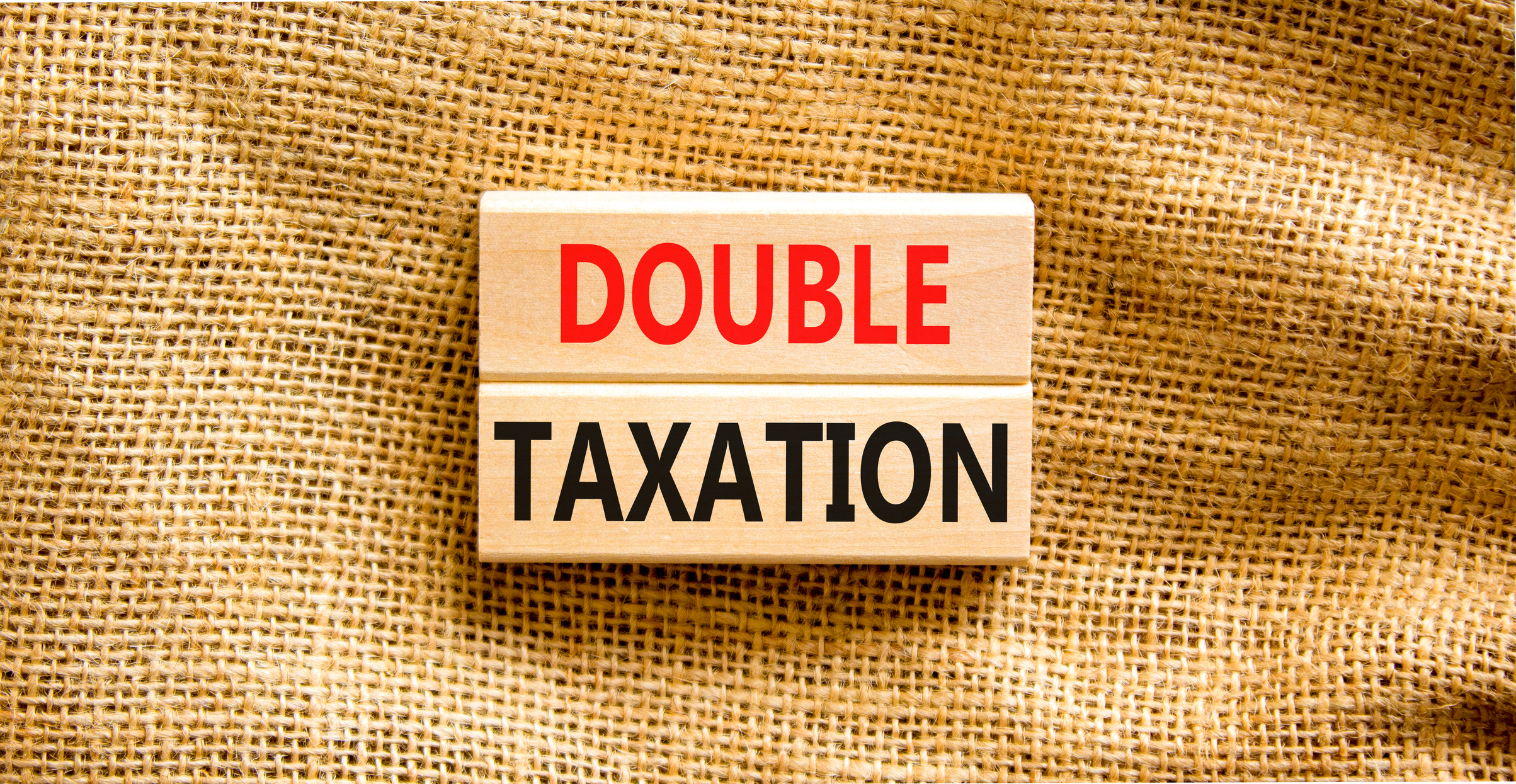New Jersey Tax Guide
Explore New Jersey's state tax rates for income, sales, property, retirement, and more. Learn how New Jersey compares nationwide.


Profit and prosper with the best of Kiplinger's advice on investing, taxes, retirement, personal finance and much more. Delivered daily. Enter your email in the box and click Sign Me Up.
You are now subscribed
Your newsletter sign-up was successful
Want to add more newsletters?

Delivered daily
Kiplinger Today
Profit and prosper with the best of Kiplinger's advice on investing, taxes, retirement, personal finance and much more delivered daily. Smart money moves start here.

Sent five days a week
Kiplinger A Step Ahead
Get practical help to make better financial decisions in your everyday life, from spending to savings on top deals.

Delivered daily
Kiplinger Closing Bell
Get today's biggest financial and investing headlines delivered to your inbox every day the U.S. stock market is open.

Sent twice a week
Kiplinger Adviser Intel
Financial pros across the country share best practices and fresh tactics to preserve and grow your wealth.

Delivered weekly
Kiplinger Tax Tips
Trim your federal and state tax bills with practical tax-planning and tax-cutting strategies.

Sent twice a week
Kiplinger Retirement Tips
Your twice-a-week guide to planning and enjoying a financially secure and richly rewarding retirement

Sent bimonthly.
Kiplinger Adviser Angle
Insights for advisers, wealth managers and other financial professionals.

Sent twice a week
Kiplinger Investing Weekly
Your twice-a-week roundup of promising stocks, funds, companies and industries you should consider, ones you should avoid, and why.

Sent weekly for six weeks
Kiplinger Invest for Retirement
Your step-by-step six-part series on how to invest for retirement, from devising a successful strategy to exactly which investments to choose.
Navigating the complexities of state taxes can be daunting, but understanding New Jersey's tax landscape is essential for residents and newcomers alike.
In this guide, we'll explore key components of The Garden State's tax system, from income and sales taxes to property taxes and retirement benefits.
New Jersey state tax: Overview
New Jersey residents know they can pay some high taxes. Everything from gas tax to property taxes are among the highest in the states. Garden State heirs may also pay a death tax.
From just $107.88 $24.99 for Kiplinger Personal Finance
Become a smarter, better informed investor. Subscribe from just $107.88 $24.99, plus get up to 4 Special Issues

Sign up for Kiplinger’s Free Newsletters
Profit and prosper with the best of expert advice on investing, taxes, retirement, personal finance and more - straight to your e-mail.
Profit and prosper with the best of expert advice - straight to your e-mail.
However, there is some good news: New Jersey's state sales tax isn't so high compared to sales taxes in other states. After all, several products in the state are exempt from tax, and New Jersey's sales tax rate is reduced in some areas.
Plus, you may qualify for a New Jersey property tax relief program to help you with your high homeowner taxes.
Here's more of what you need to know about the Garden State's tax disposition.
In the news: Some New Jersey residents may be getting money soon. The state has enacted a new property tax relief program called "Stay NJ." Eligible homeowners could receive thousands of dollars in the form of a rebate on their property taxes.
For more information, check out Kiplinger's report, Stay NJ Could Give You $6,500: The Deadline You Can't Miss.
[Data for this state tax guide was gathered from a number of sources including the Census Bureau, the state’s government website, the Sales Tax Handbook, and the Tax Foundation. Property taxes are cited as a rate percentage rather than the assessed value.]
New Jersey income tax

New Jersey has a graduated state individual income tax rate that ranges from 1.4% to 10.75%, according to the Tax Foundation.
New Jersey retirement taxes
New Jersey tax on retirement income: New Jersey doesn't tax Social Security retirement benefits, Military pensions, or Railroad Retirement benefits.
Taxpayers 62 and older (or those who have a disability) may exclude all or part of their retirement income from state taxation. To qualify for the exclusion, taxpayers cannot have an income above $150,000.
The maximum deductions are $75,000 for single filers, $50,000 for married filing separately, and $100,000 for joint filers.
Tax on Taxable Income: Low of 1.4% (on up to $20,000) and a high of 10.75% (on more than $1 million)
- Social Security: Not taxable
- Pensions: Partially taxable (Income requirements apply)
- 401(k) and IRA Distributions: Partially taxable (Income requirements apply)
New Jersey sales tax

New Jersey imposes a 6.625% state sales tax. Localities can add an additional 2%.
However, the average local and combined sales tax rate is only 6.60%, according to the Tax Foundation.
- Groceries: Exempt
- Prescription drugs: Exempt
- Diapers: Exempt
- Women's menstrual products: Exempt
How much are property taxes in New Jersey?

In New Jersey, the average effective property tax rate is 1.77%, which is one of the highest in the nation.
New Jersey Property Tax Breaks
Eligible New Jersey residents who owned or rented their home during the tax year may qualify for ANCHOR property tax relief. Last year's payments were up to $1,750 each.
Additionally, qualifying New Jersey homeowners may also receive a property tax freeze. To qualify, residents must have lived in their current home since at least 2020, among other requirements.
These two New Jersey property tax relief payments are in addition to Stay NJ, a new property tax relief program set to make payouts in early 2026. Learn more on the state's Division of Taxation website.
New Jersey gas tax

Gasoline | $0.11 per gallon |
Diesel | $0.14 per gallon |
Source: Sales Tax Handbook
New Jersey taxes on alcohol and tobacco
Product | Tax Amount |
|---|---|
Cigarettes | $2.70 per pack |
Other tobacco products | 30% of wholesale price |
Medical Marijuana | 2% |
Recreational Marijuana | 6.63% |
Source: Sales Tax Handbook
Product | Tax Amount |
|---|---|
Beer | $0.12 per gallon |
Wine | $0.88 per gallon |
Liquor | $5.50 per gallon |
Source: Sales Tax Handbook
New Jersey estate and inheritance taxes
There is no longer an estate tax in New Jersey, but that doesn't mean residents are off the hook for paying death taxes.
The state has an inheritance tax of between 11% and 16%. However, the heirs below won't need to pay a thing.
- Spouses
- Children
- Grandchildren and great-grandchildren
- Parents and grandparents
- Civil union partners
More on New Jersey
Profit and prosper with the best of Kiplinger's advice on investing, taxes, retirement, personal finance and much more. Delivered daily. Enter your email in the box and click Sign Me Up.

Kate is a CPA with experience in audit and technology. As a Tax Writer at Kiplinger, Kate believes that tax and finance news should meet people where they are today, across cultural, educational, and disciplinary backgrounds.
-
 Quiz: Do You Know How to Avoid the "Medigap Trap?"
Quiz: Do You Know How to Avoid the "Medigap Trap?"Quiz Test your basic knowledge of the "Medigap Trap" in our quick quiz.
-
 5 Top Tax-Efficient Mutual Funds for Smarter Investing
5 Top Tax-Efficient Mutual Funds for Smarter InvestingMutual funds are many things, but "tax-friendly" usually isn't one of them. These are the exceptions.
-
 AI Sparks Existential Crisis for Software Stocks
AI Sparks Existential Crisis for Software StocksThe Kiplinger Letter Fears that SaaS subscription software could be rendered obsolete by artificial intelligence make investors jittery.
-
 How to Open Your Kid's $1,000 Trump Account
How to Open Your Kid's $1,000 Trump AccountTax Breaks Filing income taxes in 2026? You won't want to miss Form 4547 to claim a $1,000 Trump Account for your child.
-
 In Arkansas and Illinois, Groceries Just Got Cheaper, But Not By Much
In Arkansas and Illinois, Groceries Just Got Cheaper, But Not By MuchFood Prices Arkansas and Illinois are the most recent states to repeal sales tax on groceries. Will it really help shoppers with their food bills?
-
 7 Bad Tax Habits to Kick Right Now
7 Bad Tax Habits to Kick Right NowTax Tips Ditch these seven common habits to sidestep IRS red flags for a smoother, faster 2026 income tax filing.
-
 New Plan Could End Surprise Taxes on Social Security 'Back Pay'
New Plan Could End Surprise Taxes on Social Security 'Back Pay'Social Security Taxes on Social Security benefits are stirring debate again, as recent changes could affect how some retirees file their returns this tax season.
-
 Living in One State, Working in Another: How to Avoid a Tax Season Headache
Living in One State, Working in Another: How to Avoid a Tax Season HeadacheState Tax Living and working in two states can take a heavy toll on your paycheck and give you a headache come tax time. Here's what to know.
-
 10 Cheapest Places to Live in Colorado
10 Cheapest Places to Live in ColoradoProperty Tax Looking for a cozy cabin near the slopes? These Colorado counties combine reasonable house prices with the state's lowest property tax bills.
-
 New Gambling Tax Rule Impacts Super Bowl 2026 Bets
New Gambling Tax Rule Impacts Super Bowl 2026 BetsTaxable Income When Super Bowl LX hype fades, some fans may be surprised to learn that sports betting tax rules have shifted.
-
 Should You Do Your Own Taxes This Year or Hire a Pro?
Should You Do Your Own Taxes This Year or Hire a Pro?Taxes Doing your own taxes isn’t easy, and hiring a tax pro isn’t cheap. Here’s a guide to help you figure out whether to tackle the job on your own or hire a professional.